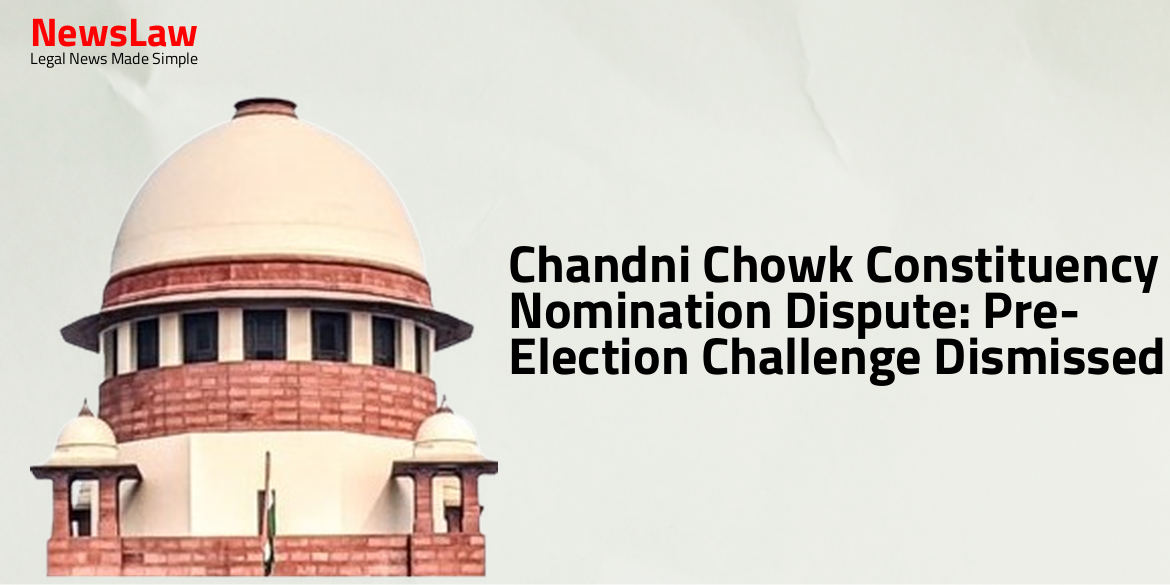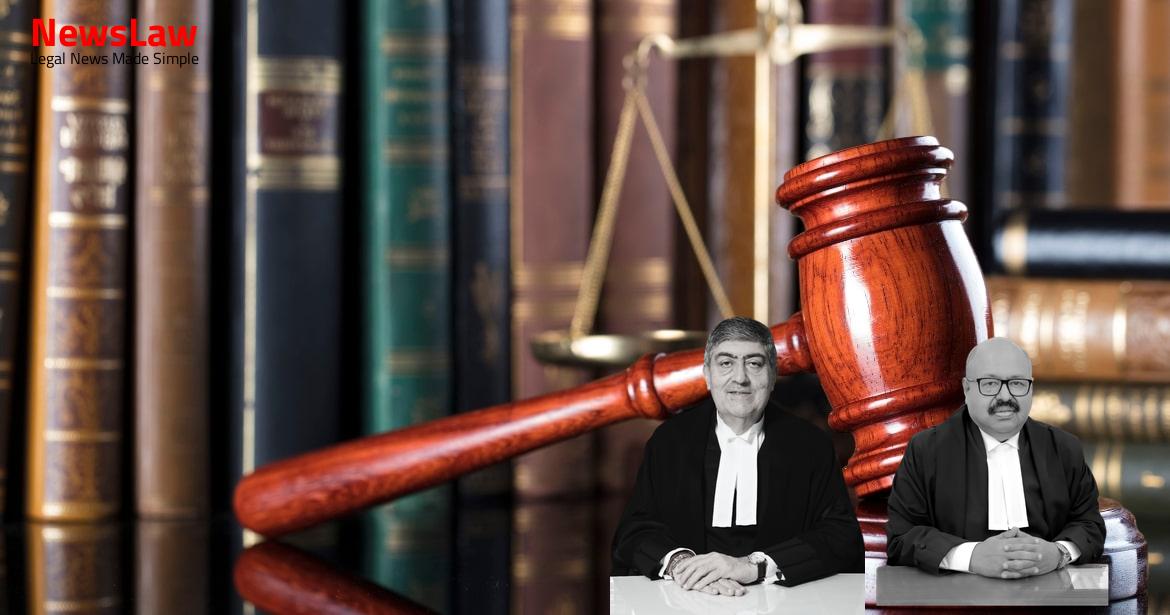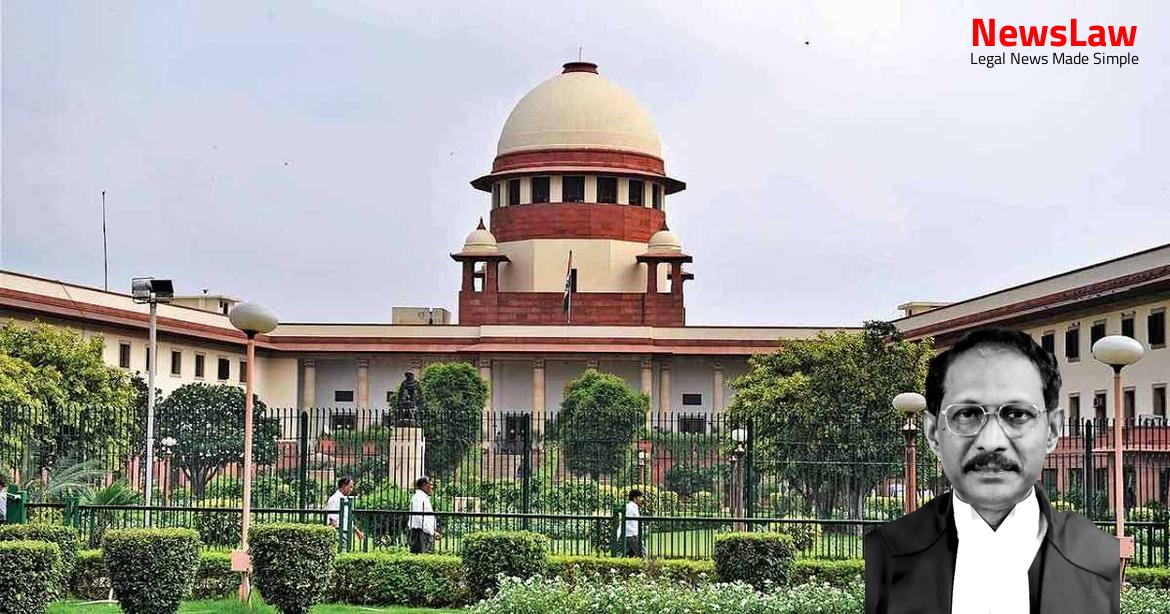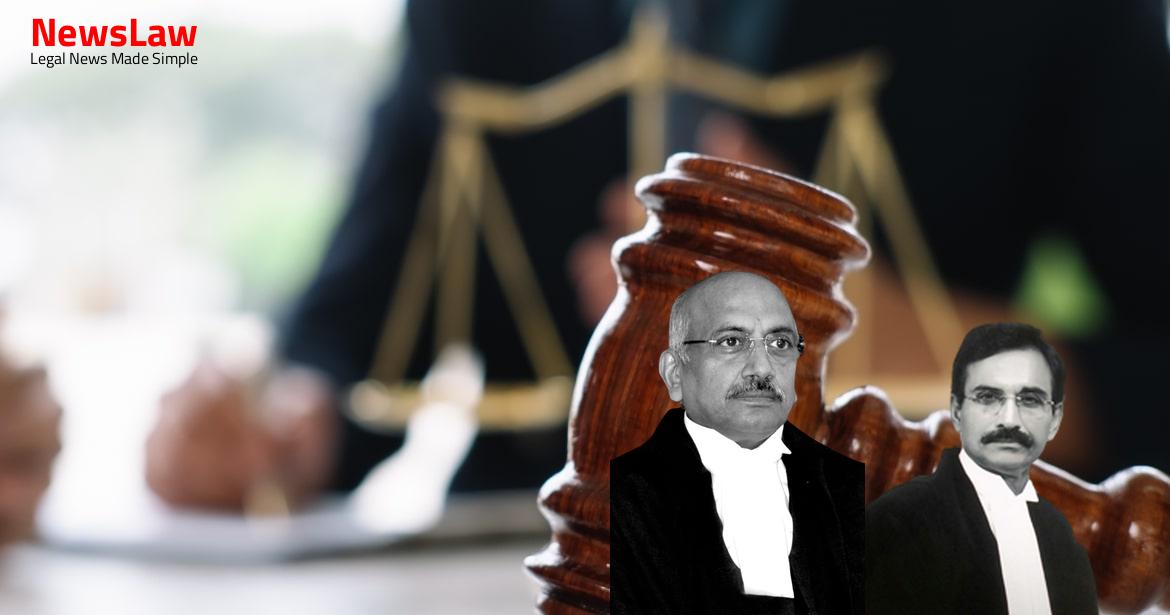In a recent case before the Delhi High Court, a pre-election challenge in the Chandni Chowk Constituency nomination dispute was dismissed. The petitioner, seeking direction to be allowed to contest the Lok Sabha elections, faced rejection of their nomination form on grounds of ‘Incorrect Format’. The respondent, relying on the case of N.P. Ponnuswami v. Returning Officer, emphasized that the petition was premature and not maintainable under Article 329(b) of the Constitution of India. This ruling carries implications for the timely resolution of election disputes and adherence to legal procedures in election matters.
Arguments
- Petitioner’s nomination form was rejected by the Returning Officer stating ‘Incorrect Format’.
- Petitioner claims to have filed the nomination form online through the Election Commission of India’s portal with a fixed format.
- Respondent gave petitioner an opportunity to file a fresh affidavit in correct format, but it was not done.
- Petitioner seeks direction to be allowed to contest the Lok Sabha elections from Chandni Chowk Constituency.
- Learned counsel for the respondents argued that the present petition is not maintainable.
- They relied on the case of N.P. Ponnuswami v. Returning Officer, Namakkal Constituency.
- They emphasized that the petition is premature and not maintainable under Article 329(b) of the Constitution of India.
- The counsel suggested that the petitioner should wait until after the elections to file an election petition.
Analysis
- Liability established by statute with a special remedy must be followed.
- Statute giving right to sue with no specified remedy requires action at common law.
- Election proceedings in England can be challenged for limited grounds like improper rejection of a nomination paper.
- General rule is one remedy provided by statute for matters connected to elections, i.e., election petition after election is over.
- Law of elections in India also follows similar principle of one attack through election petition post-election.
- No provision for invoking extraordinary jurisdiction of High Court under Article 226 during ongoing election proceedings in India.
- The Representation of the People Act, 1951 provides a forum for questioning elections under Article 329(b), excluding other forums.
- Article 329(b) bars the jurisdiction of courts for matters arising between polling commencement and final selection.
- The rejection of a nomination paper can only be a ground to challenge the election results.
- Election law’s scheme suggests that election-related disputes should be raised post-elections to avoid disruptions.
- The jurisdiction of High Courts under Article 226 is limited to matters connected to nominations.
- Challenges to election matters should be brought up before a Special Tribunal via an election petition.
- Interfering with the election process before completion could disrupt the time schedule and the democratic process.
- Article 329(b) of the Constitution prohibits challenges to elections outside the designated election petition process.
- Conflicting views between High Courts and Election Tribunals could arise if challenges are entertained at early stages.
- Anomalies may arise if challenges to elections at pre-polling stages are permitted.
- Section 100 of the RP Act, 1951 lists improper rejection of a nomination paper as a ground for voiding an election.
- Article 329 complements clause (a) and bars jurisdiction of courts during election processes.
- The law prohibits High Courts from intervening in election-related matters while elections are ongoing.
- Article 329(b) prescribes the manner and stage at which grounds for questioning an election can be raised.
- Jurisdiction of civil courts is barred from questioning the legality of actions taken by the Returning Officer or any other person appointed under the Act in connection with an election.
Decision
- The present petition is not maintainable at this stage and is dismissed.
- The petitioner can avail the remedy under Section 100 of the Representation of the People Act, 1951 after the conclusion of elections.
- All contentions of parties are kept expressly open for consideration in appropriate proceedings.
Case Title: SUBHASH GUPTA Vs. ELECTION COMMISSION OF INDIA & ANR. (2024:DHC:3957)
Case Number: W.P.(C)-7007/2024



